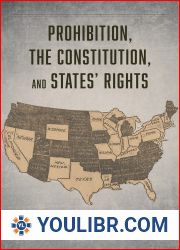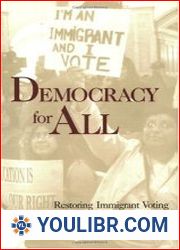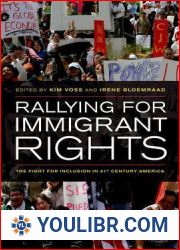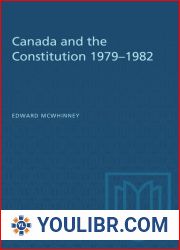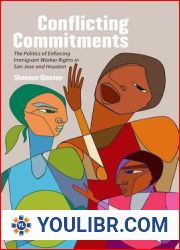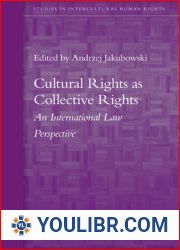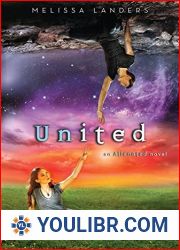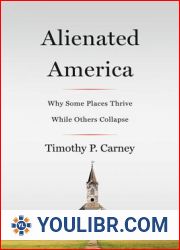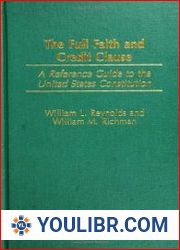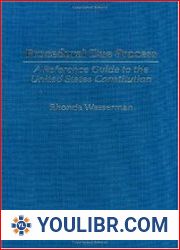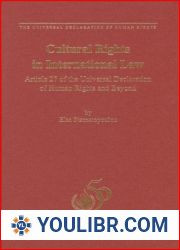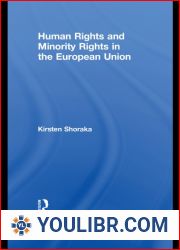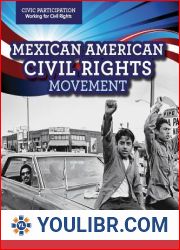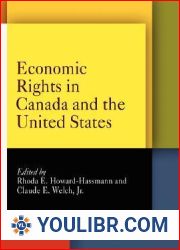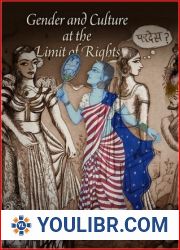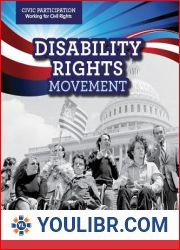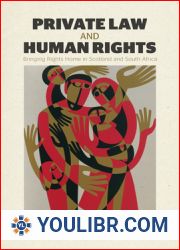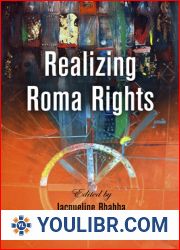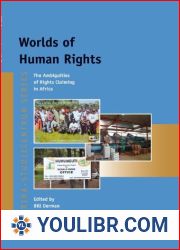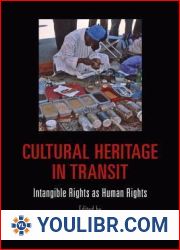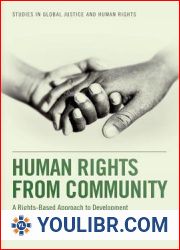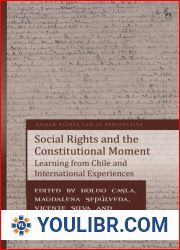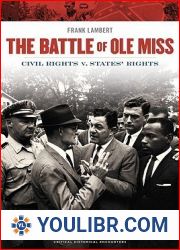
BOOKS - Alienated: Immigrant Rights, the Constitution, and Equality in America (Criti...


US $6.64

813709

813709
Alienated: Immigrant Rights, the Constitution, and Equality in America (Critical America) by Victor C. Romero (2005-02-01)
Author: Victor Romero
Year: February 1, 2005
Format: PDF
File size: PDF 1.2 MB
Language: English
Year: February 1, 2005
Format: PDF
File size: PDF 1.2 MB
Language: English
View the Table of Contents. Read the Introduction."Well written, compelling, and even pioneering to the extent that Romero, in his quest to protect noncitizens, seeks assistance from many and varied sources. By tempering his idealism with large doses of pragmatism, moreover, he leaves the reader feeling that while his goals are lofty, they are not entirely out of reach." - Perspective on Politics and "The book is well-written, compelling, and even pioneering to the extent that Romero, in his quest to protect noncitizens, seeks assistance from many and varied sources. and " - Perspectives on Politics and "Clearly written and contains copious footnotes and an extensive and useful bibliography. and " - Choice and "An important book. Its analysis is thoughtful, detailed, and well-argued. Only over time have white ethnics, Jews, African Americans, Asian immigrants, Latino as, Arabs and 'others' come to be accepted as equal members in a changing community. Yet we continue to believe that our national sovereignty depends on our power to distinguish between citizens and aliens. Victor Romero reveals the tension between these contradictory conceptions of the New World. The changes brought about by September 11, 2001, and the Patriot Act have made it crucial to develop principles that will allow us to survive - and thrive. Romero inspires us to be critical but optimistic. His work should be the pre-requisite to discussion of these issues. and " - Frank H. Wu, Dean, Wayne State University Law School and author of Race in America Beyond Black and White and "Victor C. Romero has done what few scholars and journalists have been able to he has put a human face on the tragic events of September 11, and equally importantly, on their aftermath. His important book is almost the perfect blend of doctrinal scholarship in the complex field of immigration law and social science - particularly the anthropological and sociological studies of immigrants in this alien nation. Inasmuch as he immigrated to this country, his voice has a clear and haunting pitch. He has set the bar very high for those of us who write in these all of us will have to reckon with this work. and " - Michael A. Olivas, William B. Bates Distinguished Chair in Law and Director, Institute for Higher Education Law and Governance,University of Houston Law Center and "The author is correct that we need to re-examine whether a sharp disparity ought to exist between citizens and those others here legally or otherwise who strive to be part of the American dream. This book contributes an important analysis of these issues. and " - Lawyer's BookshelfThroughout American history, the government has used U.S. citizenship and immigration law to protect privileged groups from less privileged ones, using citizenship as a and "legitimate and " proxy for otherwise invidious, and often unconstitutional, discrimination on the basis of race. While racial discrimination is rarely legally acceptable today, profiling on the basis of citizenship is still largely unchecked, and has in fact arguably increased in the wake of the September 11 terror attacks on the United States. In this thoughtful examination of the intersection between American immigration and constitutional law, Victor C. Romero draws our attention to a and "constitutional immigration law paradox and " that reserves certain rights for U.S. citizens only, while simultaneously purporting to treat all people fairly under constitutional law regardless of citizenship.As a naturalized Filipino American, Romero brings an outsider's perspective to Alienated, forcing us to look at constitutional immigration law from the vantage point of people whose citizenship status is murky (either legally or from the viewpoint of other citizens and lawmakers), including foreign-born adoptees, undocumented immigrants, tourists, foreign students, and same-gender bi-national partners. Romero endorses an equality-based reading of the Constitution and advocates a new theoretical and practical approach that protects the individual rights of non-citizens without sacrificing their personhood.









